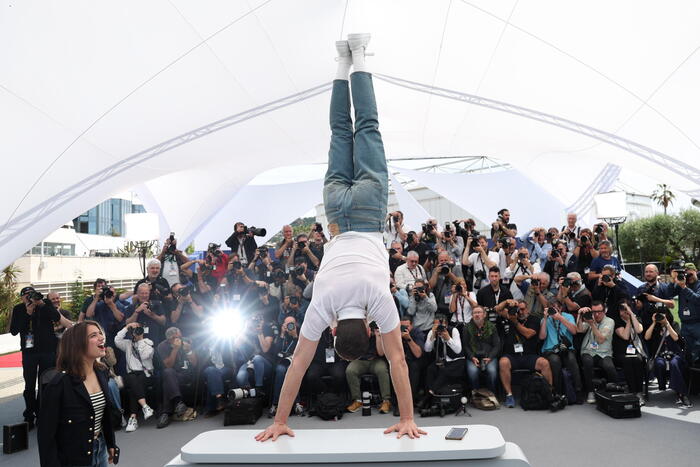The bargaining is between 6.5 and 7 yuan per packaged garment, 1 yuan is equal to 0.13 euro cents, so for a T-shirt, shorts or whatever it is we are at 0.84 euro cents. There are more complicated models to follow the fashion of veils, applied embroidery, flounces, but the boss does not give in, the negotiation is with a smile but more than 0.25 yuan does not tear.
It is the hell of textile workshops in China that shows without drama but also without filters Jeunesse (Le Printemps), the long documentary by Chinese director Wang Bing that the Cannes Film Festival has selected in the competition for the Palme d'Or.
There is nothing that you did not know, or rather did not imagine, because seeing on the big screen for over 3 hours what happens in the days of these workers is hard to digest.
Made between 2014 and 2019, by what is considered among the greatest documentary filmmakers (although he now signs the new Man in Black) it is a total immersion in the world that brings packaged fashion globally to our stores and those everywhere else.
The capital of textiles is Zhili and what makes us discover the film is the way fast fashion is manufactured. They are not large factories but 18 thousand small laboratories that churn out compact packages of all sorts of clothes, ready to enter the containers for distribution. There are the owners who receive the model to be produced and who have strict delivery times, in turn commission the work to the workers. They are very young, many minors, who in small rooms scattered in the back room or in the buildings, work at incredible rates marking on a notebook how many pieces they go to deliver to the boss and therefore how much money to receive, never enough, despite their efforts. The rhythm is given by the sewing machines, they there bend over a piece of cloth away the other almost you can not keep up with their eyes so fast they are. While they are there concentrated like automatons assembling fabrics, they talk, joke, laugh, eat, get engaged, chase each other, quarrel, make peace. And after the shift that covers the whole day they retire to the beehive apartment buildings, slaloming among their own waste. They enter dirty rooms all the same, with bunk beds. There are no kitchens, everything is bought outside and brought up late at night for dinner in cardboard boxes, the only thing they prepare is rice in the electric pot and liters of tea.
It's a terrible life, where you can't get sick, you can't start a family, much less have children, because if you don't sew they don't pay you. You change laboratories easily, hoping that the boss next door in the same street ironically called Happiness Road, the way of happiness, offers a few cents more. And do you think that as much as is said since the tragedy of the Rana Plaza just 10 years ago, the most serious disaster of the fashion industry with over 1300 deaths, very little has changed. In so much ugliness, of environments, of work, of situation, youth wins over everything. The vitality of these slaves, their desire to live and have fun, wins over everything and is impressive.
They think about having an evening despite the 12 hours of work, going out together, buying the latest iPhone of course, dressing fashionably. They are boys, teenagers or a little more, the new Chinese generation, not the rich one of the big cities but the poor rural one that abandons the villages, willing to do anything.
They have no washing machines, they have no closets, they hang their clothes outside the windows and the moplen basin is their toilet, yet they live and smile. It is the lightness of age, not without melancholy, not without the desire to change life and for this reason hope remains. One in 300,<> internal and external migrants working in that hell will make it.

